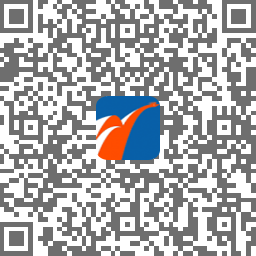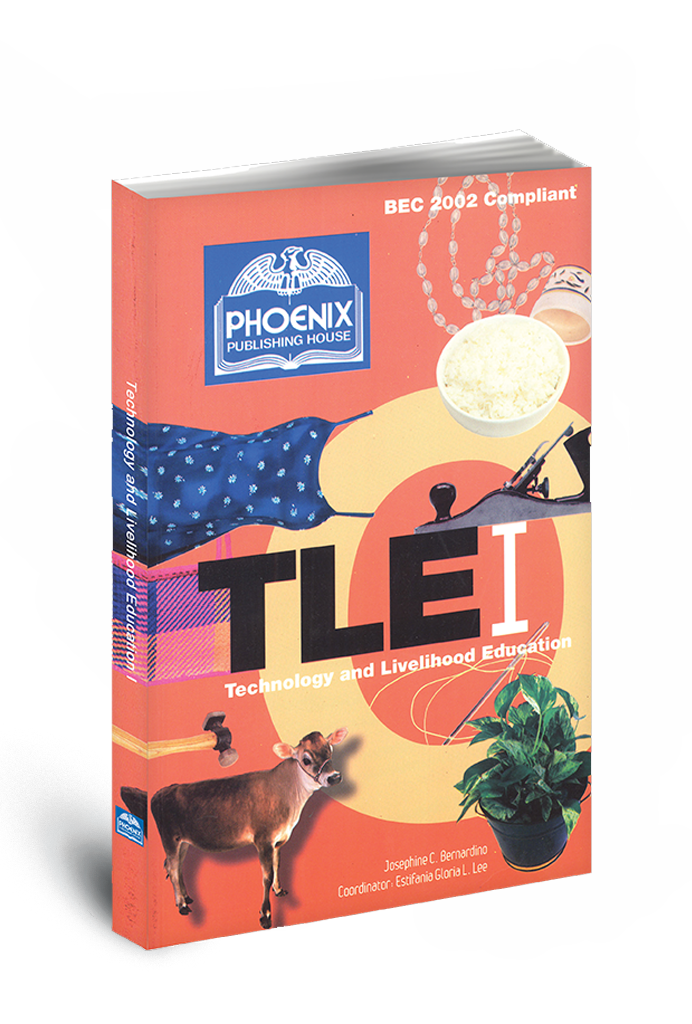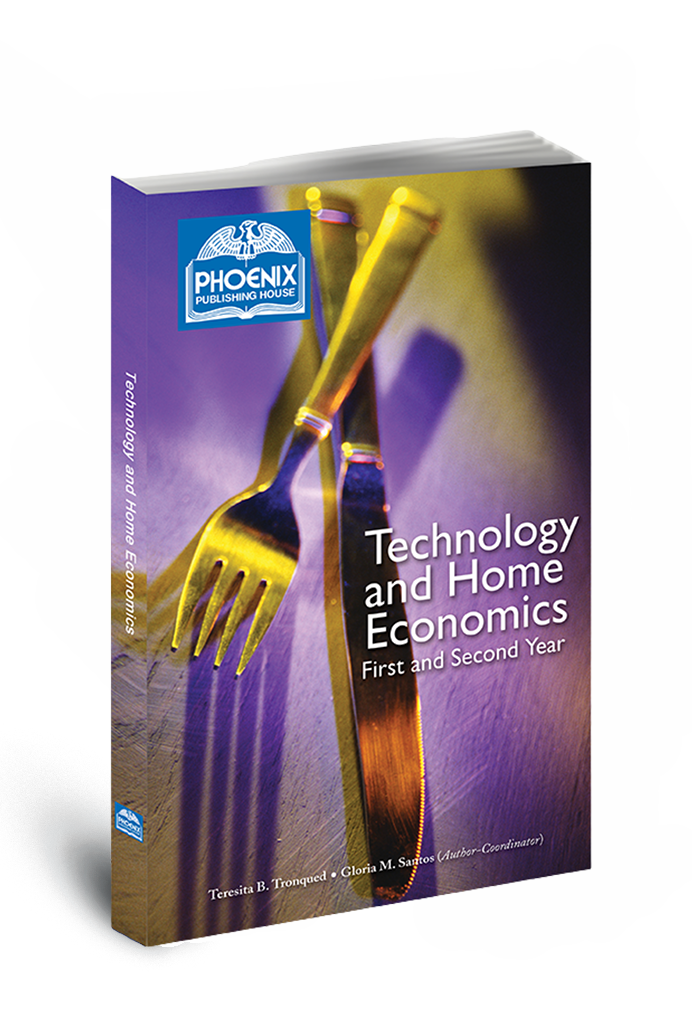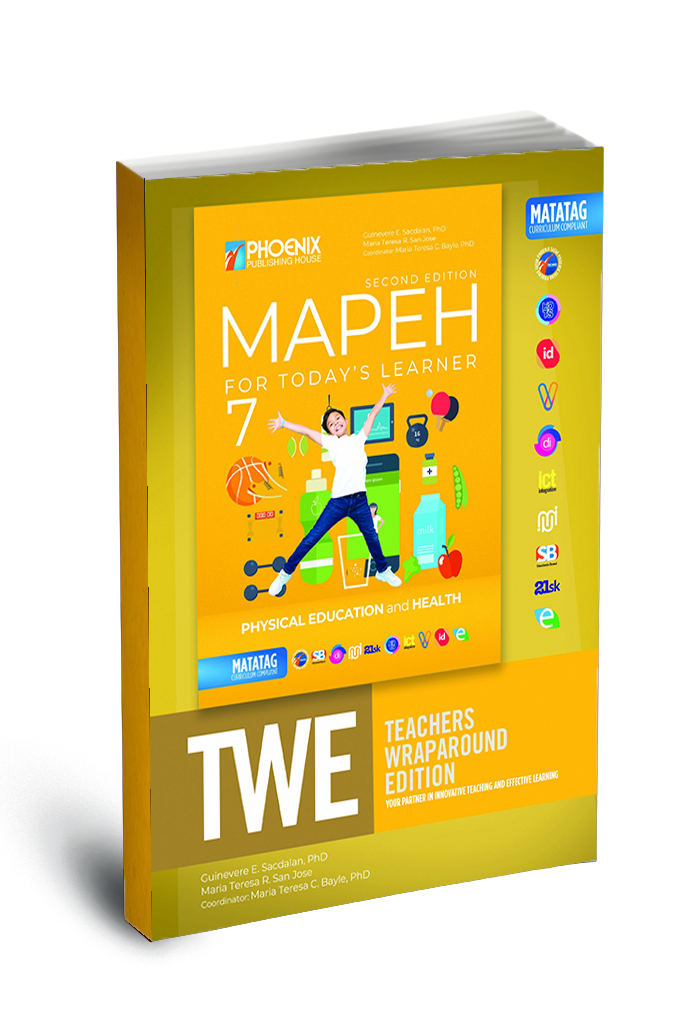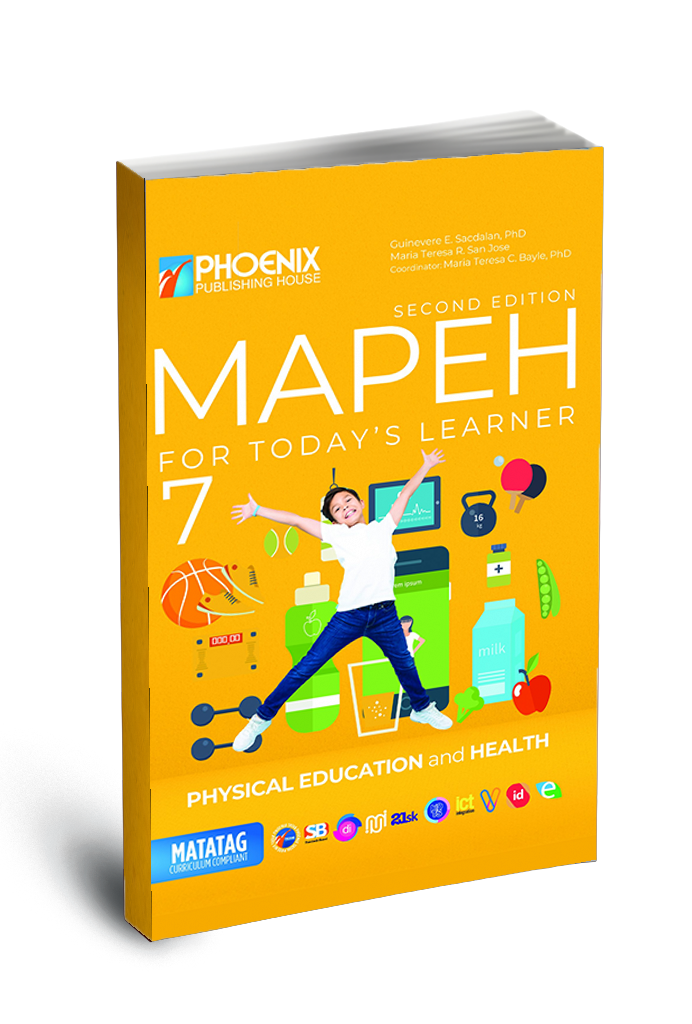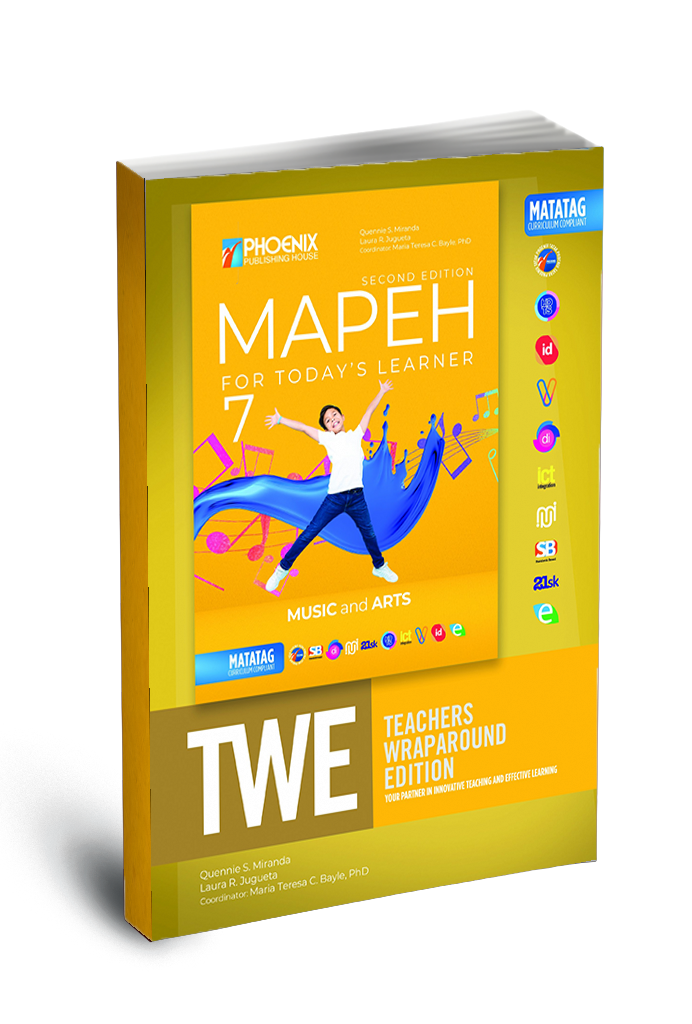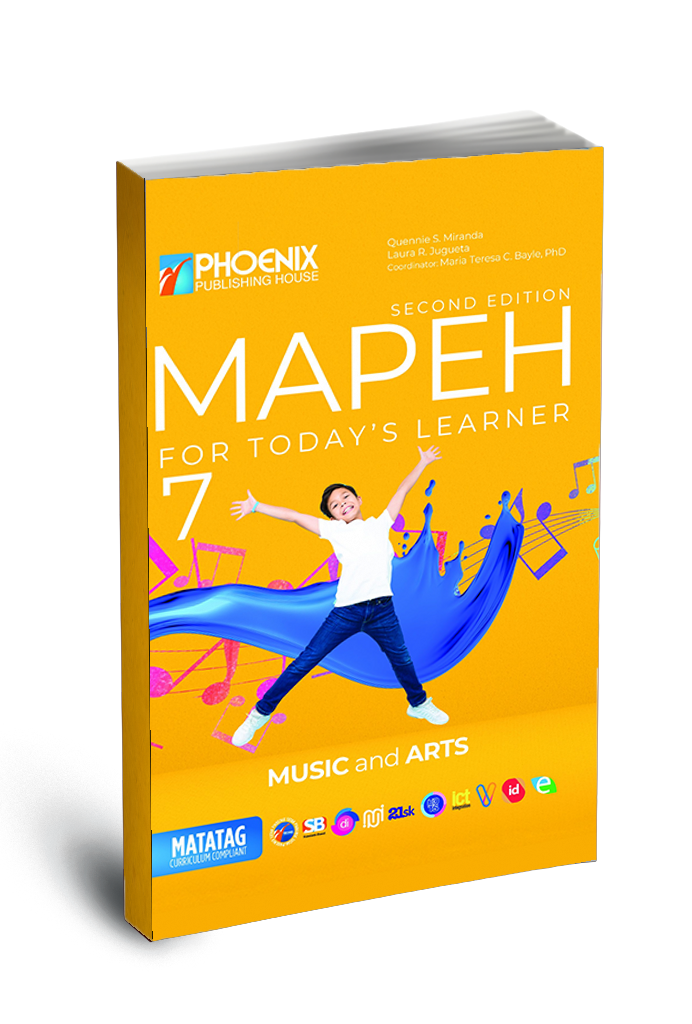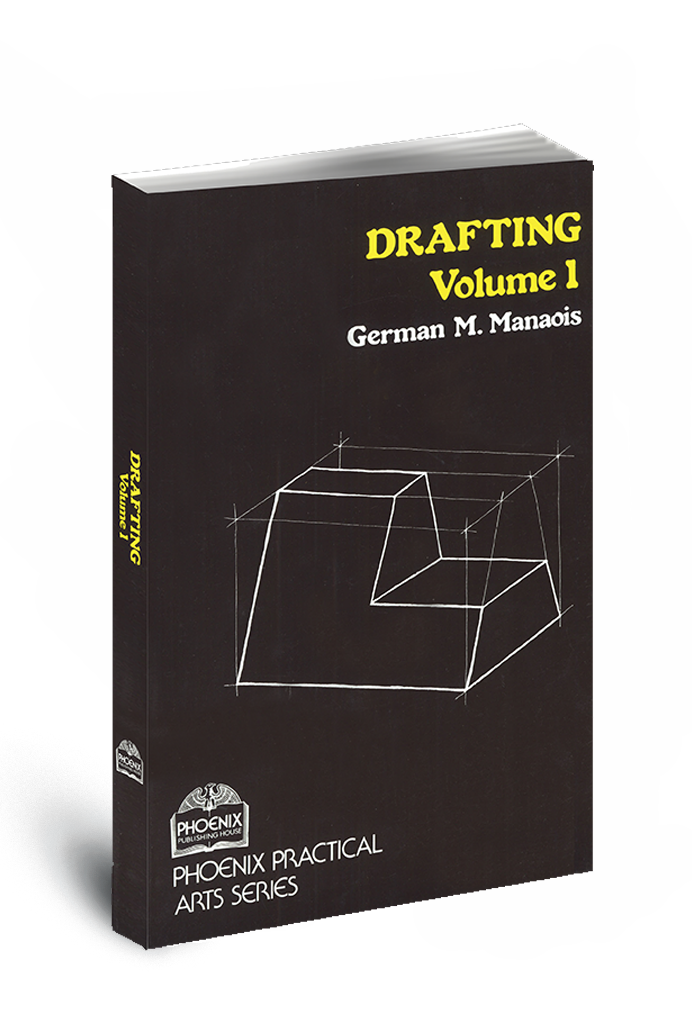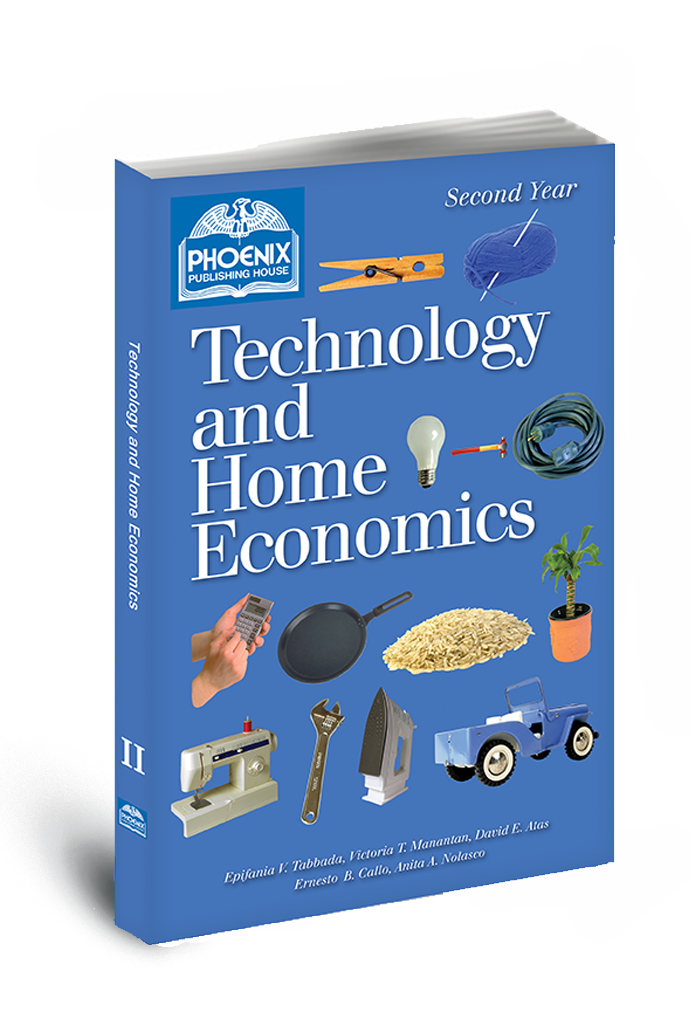
Technology and Home Economics
Technology and Home Economics answers the high school teachers’ need for a technology and home economics program that provides relevant and doable activities and projects, uses indigenous materials, and integrates values education techniques. The series gives students opportunities to explore the four components of technology and home economics, namely, home economics, industrial arts, agricultural arts, and entrepreneurship.
Author/s
Level I: E. Tabbada, A. Ebalan, A. Nolasco, and B. Villanueva
Level II: E. Tabbada, V. Manantan, D. Atas, and A. Nolasco
Level III:
Dressmaking I – E. Tabbada and E. Reyes
Related Crafts I – E. Tabbada and T. dela Cruz
Level IV:
Dressmaking II – E. Tabbada and E. Reyes
Culinary Arts II >– L. Basbas
Food Management and Service II – V. Manantan
Related Crafts II <– E. Tabbada and T. dela Cruz
Level/s
Junior High
Copyright
Level I: 1993
Level II: 1998
Level III:
Dressmaking I: 1998
Related Crafts I: 1998
Level IV:
Dressmaking II: 1994
Culinary Arts II: 1994
Food Management and Service II: 1995
Related Crafts II: 1998
Technology and Home Economics I and II provide a more meaningful way to learn the concepts and skills of responsible family living through the books’ use of values education techniques.
Books I and II present the complete components of the course—home economics, fishery arts, industrial arts, agricultural arts, and entrepreneurship.
Technology and Home Economics III and IV elaborate on the following subjects:
Basic Computer Education acquaints students with the parts and functions of a computer.
Basic Electronics equips students with basic concepts and skills in electronics as it deals with lessons on resistance, capacitance, inductance, transistor circuits, and radio receivers.
Culinary Arts deals with basic concepts, principles, and techniques in baking and food preservation. It has a special section on preparing native delicacies.
Dressmaking arms high schoolers with the know‑how in organizing and managing dressmaking and fashion designing businesses.
Food Management and Service emphasizes the values of good health through meal planning, food preparation, cooking, and other aspects of food management.
Related Crafts equips students with the necessary knowledge and expertise in the different areas of embroidery, Irish crochet, quilt making, recycling, and fabric painting.
The Textbook encourages the active participation of students in all activities using resources available in the community. The textbook offers practical lessons that develop students’ entrepreneurial skills and experience and provides them technical training in business ventures.
The Teachers Guide provides detailed lesson plans and teaching strategies to help teachers in the presentation of lessons in the textbook.
Other Books
Building Learner Resilience with MATATAG Curriculum – Compliant Solutions

